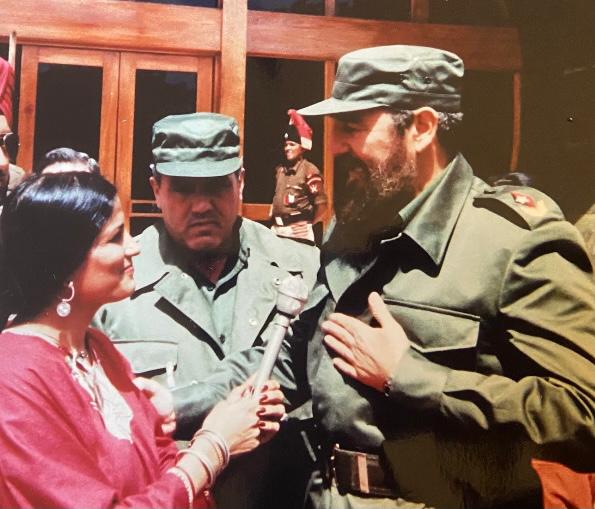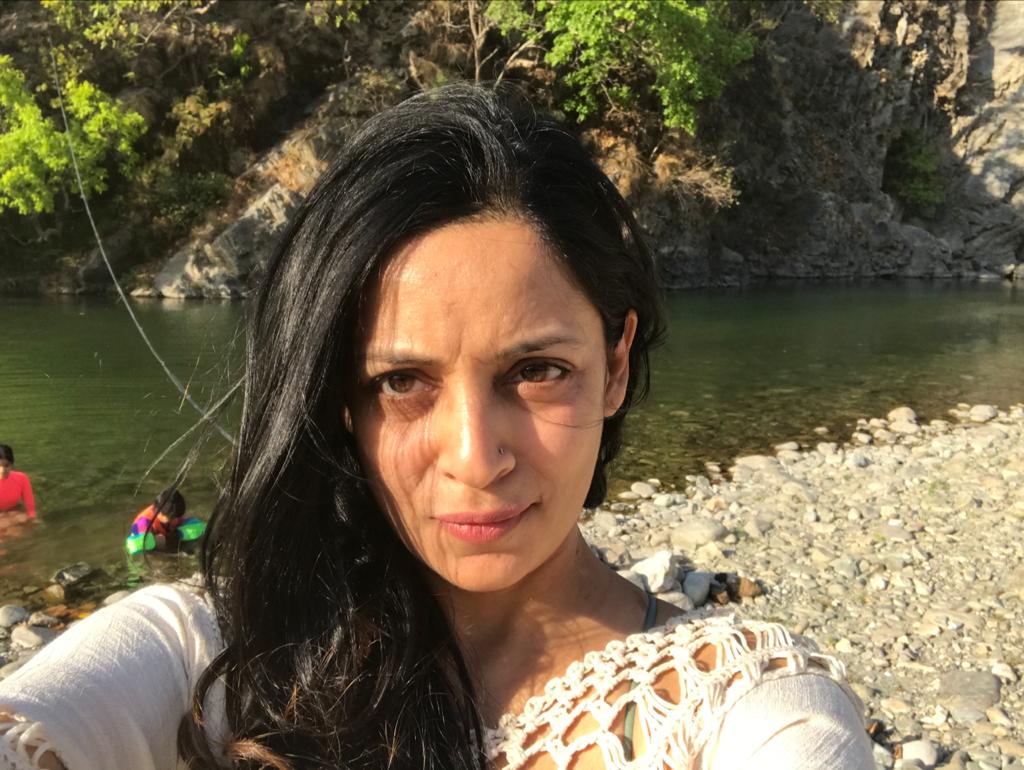
EMPOWERING VISUAL COMMUNICATION
for 45 years, 24 Frames has been working to
empower visual communication globally &
with a focus on India
About 24 Frames Film Ltd.
24 Frames has been in content production for over 40 years, our films have played out in 170 countries globally on TV channels from Discovery to the BBC and Al Jazeera. In the 4 decade period we have worked with most Government Ministries and many International organisations including most of the United Nations organisations. since 2000 we have been working in Digital content production.
24 Frames Films Ltd. is a company dedicated to audio visual communication. Our core belief is that the power of visuals in a country like India is crucial, and the digital opportunity presents great outreach scope for video content. As a film production house, we’ve been working across the spectrum for about four decades. From documentary features for international broadcasters like BBC World, Al Jazeera English – on topics related to environment, wildlife and development themes. To entertainment and lifestyle content for Discovery India, Doordarshan, to online platforms including for Discovery Channel, History Channel among others.
Work Samples & track record
We work with credible institutions, Govt bodies, Corporates and NGOs
Amazon Alexa (digital) launch of Amazon in Hindi
In September/October 2019, we completed the Renault Ride to Conquer series for the History channel (AETN), here is one of the episodes that took Chef Kunal Kapur on a journey to create a unique meal in Rajasthan, his travels and experiences helped curate the meal,
With Jonty Rhodes we made 2 one hour specials for South African Tourism, a lot of focus was on food, (Digital and Broadcast)
In September/October 2019, we completed the Renault Ride to Conquer series for the History channel (AETN), here is one of the episodes that took Chef Kunal Kapur on a journey to create a unique meal in Rajasthan, his travels and experiences helped curate the meal,
Tata Center for Technology & Design (for MIT Energy Initiative) Documentation of a water filtration project
ICCO Collective projects on Nutrition and sanitation, (multiple states India)
Future Food: Fat or Skinny (BBC World: British Broadcasting Corporation ) In discussions of feeding the planet, many now argue for a new way of thinking about food technology, food policy and food science. Since the days of the “Green Revolution”, which promised enough food for all but which ultimately reduced crop varieties, created a dependency on fossil fuels and depleted the land, studies have shown that “agroecology” – the application of ecological principles to the production of food – could double food production in the next 10 years sustainably. But can low-yield sustainable farming methods feed 9.5 billion people by 2050? Without GM crops or synthetic fertilizers, can farmers increase food production by 70 percent? Fat or Skinny? In India Tulika Verma is on a mission to ban junk food from Delhi’s schools – where over one in six schoolchildren are overweight. Western-style diets and processed food are becoming ever more popular in India’s cities, while traditional, healthy, sustainable foods are being forgotten. India’s on the edge of two possible futures: a future that’s well fed and healthy; or a future of ‘Western-style’ diets and a public health epidemic of obesity.
Living on the Go Bangladesh -- too often at the mercy of extreme weather. Densely populated and low lying, it's one of the 10 countries most vulnerable to the impacts of a changing global climate - cyclones, floods, erosion and drought are destroying the livelihoods for millions, forcing them to move. So how can millions of Bangladeshi's protect their families - and their incomes? A joint team of researchers from University of Dhaka, Bangladesh and University of Sussex, the UK are looking at the impact of climate change on migration - their research could help provide the answer and shape better public policy. Living on the Go, a film based on the research, follows communities in the Gabura, Satkhira region who were affected by cyclone aila in 2009. To cope with the after effects, some of them migrated inlands, in search of livelihood. The film, commissioned by Climate and Development Knowledge Network (CDKN) has been produced by Television Trust for the Environment(tve.org), in association with 24 Frames Film Ltd.
A Journey to Empowerment: 2012 Film on the UNDP-IKEA foundation led project SWAAYAM: The film showcases how this initiative is transforming the lives of women in some of the most backward parts of India. Based on the exciting potential for change displayed by these 50,000 women in eastern Uttar Pradesh, the UNDP IKEA Foundation partnership Swaayam scaled up to 2.2 million women and their families in 4 states – Maharashtra, Gujarat, Rajasthan and Uttar Pradesh.
Life Apps: India - Mobile Harvest is part of a five-part series exploring mobile telephone technology for social good in the developing world. The film was produced as part of a wider project, Reframing Rio, with support from the EU, CDKN and other funders. ‘Mobile Harvest’ was jointly produced by tve and 24 Frames. ‘Mobile Harvest’ follows Sachin Gaur, an award winning software engineer who wants to develop applications that can help rural farmers in India.
Silk Ceiling: Independent films made with the support of UNDP India and Indonesia, illustrating the major findings of the Asia-Pacific Human Development Report on Gender, through the lives of ordinary women. The films were first broadcast globally on BBC World. The tve South Asia Regional office also secured multiple broadcasts of the films in English, Hindi, Bangla, Nepali, and Tamil, with a reach of hundreds of millions of people across the region on INX/NewsX, Makkal TV, Shubh Varta and five channels of the ETV network in India; on Dawn TV in Pakistan; Avenues TV in Nepal; Bangla Vision and Baisakhi TV in Bangladesh; and Bali TV in Indonesia.
Vodafone Foundation Film We also completed the film for the launch of the Vodafone foundation in India, the film features the projects across India and globally. The film high lights women empowerment related projects undertaken by the foundation globally. (125 DIgital only films)
Additional health & developmental films (Links on request)
Towards a Healthy Bangalore (BHUP, showcasing the Bangalore Healthy urbanisation project, WHO India)
Disaster Preparedness 2008 , produced this films for the IFRC (Red Cross) focuses on the disaster preparedness among the countries of the Indian Subcontinent
Pictures Don’t Lie, 2008 a short film on the need for introducing pictorial pack warnings on tobacco products
PESA Panchayat Extension of Scheduled Areas, The film looks at the Panchayat extension of scheduled areas act of the Panchayat Raaj Act. The film feature a case study in chhatisgarh where the tribal people were able to fight for their land and safeguard it against a large cement factory that wanted to setup there. (Ministry of Panchayati Raj)
Choosing Health 2011/2012 : A series of short films and video mesaages made for the Centre for Global Health Re- search the Choosing Health project was a very innovative project as it involved send- ing specific interventions for health as videos and films to the decision makers in India spread in 300 of the 610 districts of the country. The interventions if adopted would help them reduce mortality by 4 factors by a factor of upto 50%
Missing Girls in India : Video news release explaining the results of a recent study finding up to 12 million miss- ing girls in India as a result of selective abortion. Led by the Centre for Global Health Research (CGHR) the study found that selective abortion of girls is more common in wealthy households, and among women with at least 10 years of education.
Cancer Deaths in India (Centre for Global Health Research) : Video news release of a recent study show- ing that cancer accounts for nearly 600 000 deaths each year in India, many of which are avoidable. The study, led by the Centre for Global Health Research, and in close collaboration with Tata Memorial Hospital, is the first to provide a reliable total number of cancer deaths in rural and urban India. Previous estimates have relied on data from cancer registries, which are mainly located in urban areas, and are not representative of the 70% of Indians who live in rural areas.
Rehabilitation and Resettlement in India (2010/2011 The World Bank) The film showcases the good practices of Land acquisition and Rehabilitation and resettlement in India, the 8 part series covers different states of India and looks at the situation across 10 sectors ranging from linear projects, power, infrastructure etc. In India over 20 Million people have been rehabilitated and this film aims at showcasing and encouraging the good practices of R&R.
DIRECTORS

Harsaran Bir Kaur Pandey
Harsaran Bir Kaur Pandey, is a Director of 24 Frames Films Ltd, she is among the first women news producers in India, (Doordarshan till the late 80s), when she joined UNICEF as a information officer (India), and then WHO SEARO as communications officer for the south east Asia Regional office. She is currently writing her second book on the evolving news media in India.

Ambica Kapoor
Ambica Kapoor has a rich background in the media space, part of the initial Star News team, Ambica was a part of launch team of NDTV India, NDTV Profit, as deputy channel producer. From 2009 she has been a director of 24 Frames Films (proprietorship) and from 2013/2014 as promoter and Director of 24 Frames Films Ltd
CONTACT US
Corporate:
87 National Media Center
Gurgaon Haryana 122002
Studio:
461, DLF 3, Nathupur, Gurgaon, Haryana 122002